

REG2403 - Suivi de la situation humanitaire au Burkina Faso et au Mali - Protection - Décembre 2024
PDF1.6M
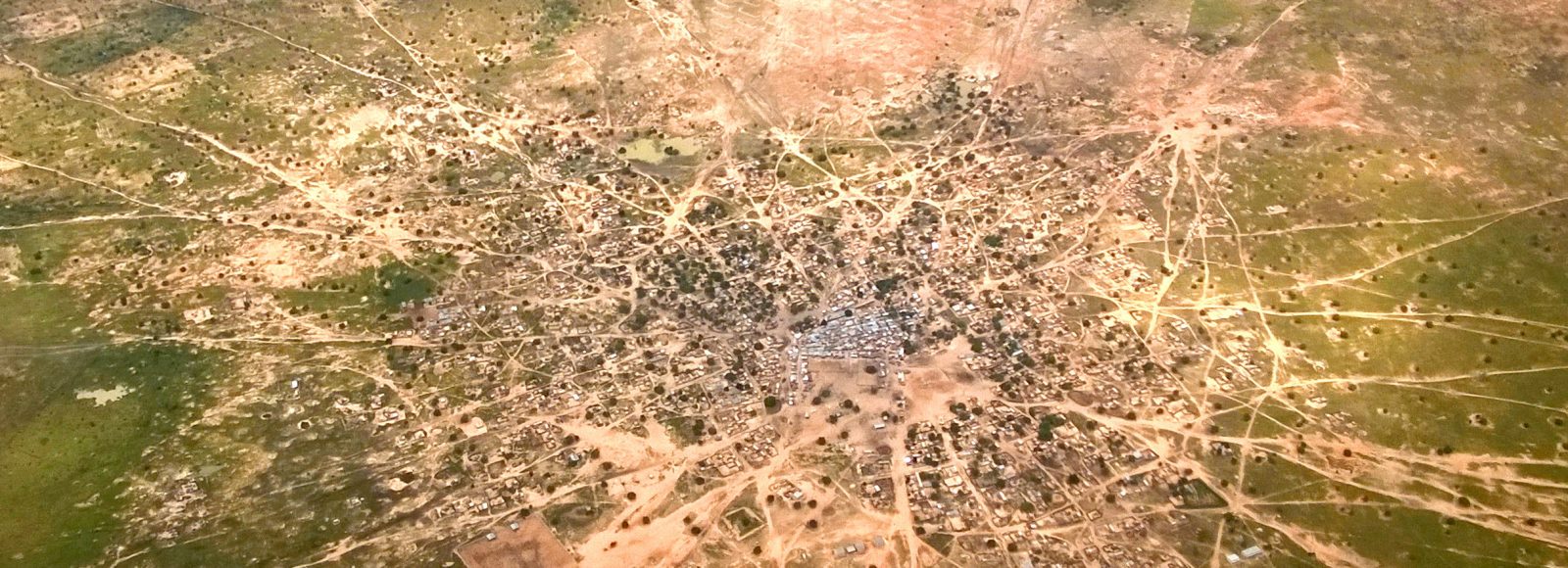
Since 2012, Niger has been characterized by several – at times overlapping – crises. Structurally underdeveloped with the world’s highest birth rate per woman, the country has been heavily impacted by conflict and population displacement on its borders with Mali, Burkina Faso, Nigeria, and Chad.
The combination of instability and structural barriers has strained an already fragile humanitarian situation, and the country remains prone to severe food crises resulting in food insecurity and malnutrition. Moreover, at the frontline of climate change, Niger has also been facing frequent heavy rainfall and flooding, provoking massive displacements in several areas of the country and impacting farming production.
In addition to natural hazards, the rapid demographic growth coupled with increased land silting in the southern part of Niger has increased conflicts around land access between herders and farmers, especially in southern Niger.
IMPACT was first deployed to Niger in 2012 when worsening violence in the north of Mali led Malian refugees and Nigerien IDPs to flee to the Tillaberi region in western Niger. Through its REACH initiative and in close cooperation with UNHCR, IMPACT launched mapping programs in the three camps hosting displaced populations. Subsequently, REACH operations expanded to the south-eastern Diffa region. In addition, REACH has conducted assessments on migrants transiting through Niger towards North Africa and Europe. IMPACT has also played a key role in the Rapid Response Mechanism (RRM) consortium in Niger by providing Information Management Support. IMPACT has also built sectoral expertise (CVA, WASH, Food Security, AAP and protection), through thematic assessments, in collaboration with key humanitarian partners.
Activities:
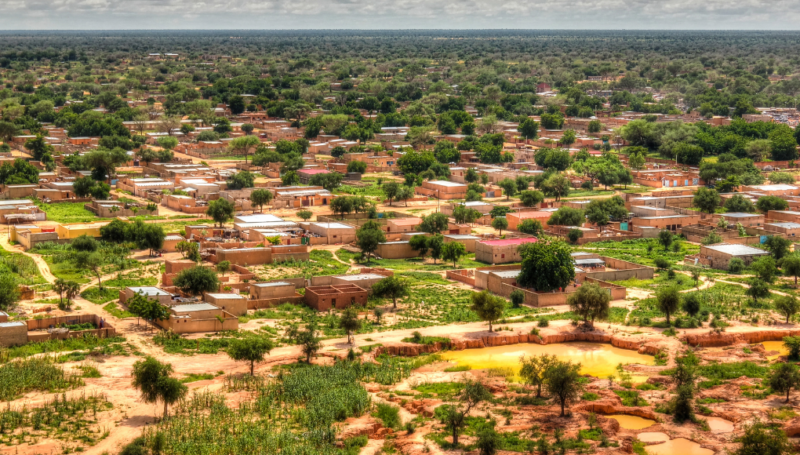
Les régions de Tillabéri et de Tahoua au Niger, situées dans la zone des trois frontières entre le Burkina Faso, le Niger et le Mali, sont gravement touchées par une...
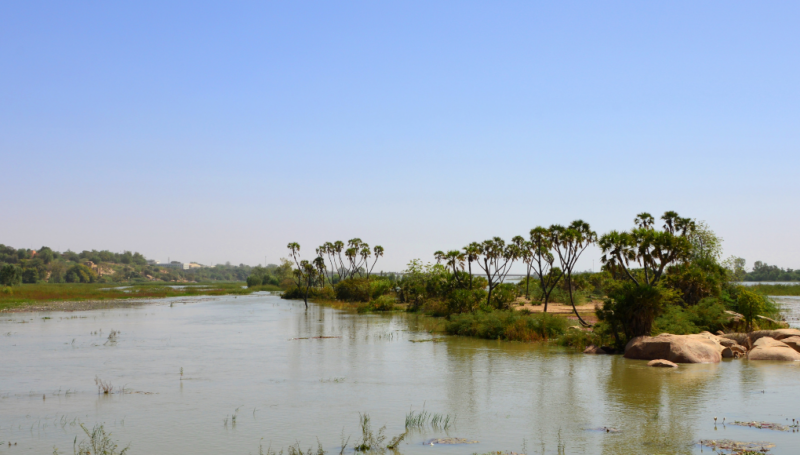
En décembre 2023, REACH a publié une fiche d’information complète éclairant le paysage humanitaire au Niger, en se concentrant particulièrement sur la redevabilité envers les populations affectées dans le but...
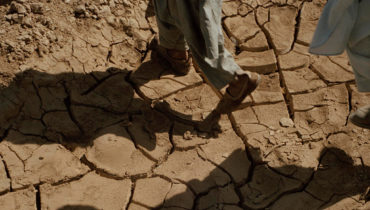
IMPACT Initiatives, notably via its REACH, AGORA, and PANDA initiatives, is increasingly committing research efforts to inform the aid community on how to tackle climate risk. The objective? To identify...


REG2403 - Suivi de la situation humanitaire au Burkina Faso et au Mali - Protection - Décembre 2024
PDF1.6M

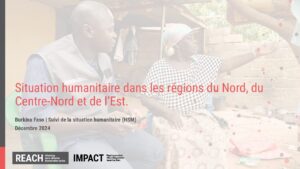
REACH BFA | HSM Nord, Centre-Nord, Est | Décembre 2024
PDF2.8M


REACH HSM Sahel Mali I Situation Sanitaire à Kidal et Ménaka I Octobre 2024
PDF777.8K


REACH I Suivi de la situation humanitaire (HSM) au Burkina Faso et Mali I Tableaux d'analyse I Décembre 2024
XLSX535.8K

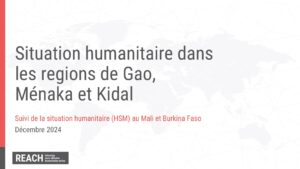
REACH HSM Sahel Mali (Gao-Kidal-Ménaka) Décembre 2024
PDF3.2M

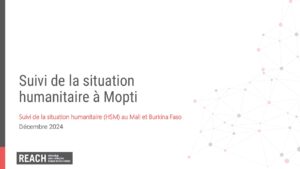
REACH HSM Sahel Mali I Mopti I Décembre 2024
PDF4.9M


NER2106_FactSheet_SECAL_RRM_Nov 2023
PDF1.6M


REACH HSM Sahel Présentation Mali-Mopti Octobre 2024
PDF2.1M


REACH HSM Sahel Présentation Mali (Gao-Ménaka-Kidal) Octobre 2024
PDF2.2M

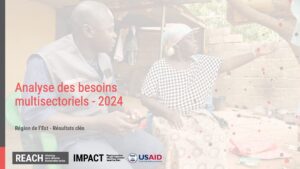
REACH HSM Sahel Burkina Faso | Situation des besoins multisectoriels dans la région de l'Est | Octobre 2024
PDF8.9M


REACH NER MSNA 2024 - Présentation des résultats EHA - Octobre 2024
PDF4.8M

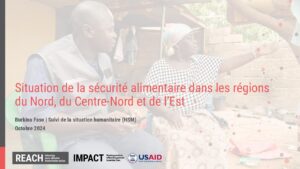
REACH Burkina situation de la sécurité alimentaire dans les régions du Nord, du Centre-Nord et de l’Est Octobre 2024
PDF1.2M


REACH Niger Aperçu des résultats MSNA 2024 - Région Maradi
PDF4.3M


REACH Niger Aperçu des résultats MSNA 2024 - Région Maradi
PDF4.3M


REACH Niger Aperçu des résultats MSNA 2024 - Région Tahoua
PDF3.3M


REACH I Suivi de la situation humanitaire (HSM) au Burkina Faso, Mali et Niger I Tableaux d'analyse I Octobre 2024
XLSX619.3K